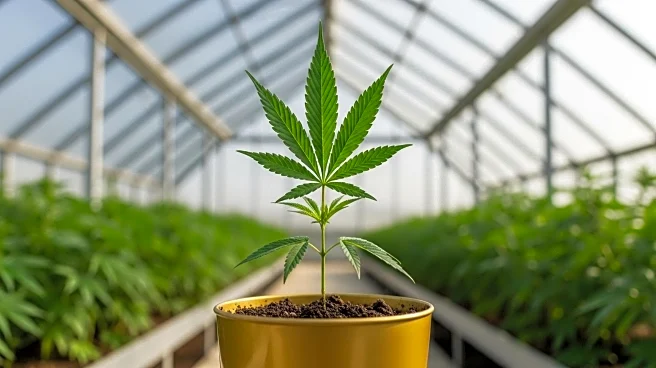What is the story about?
What's Happening?
Texas has updated its cannabis license application process following the enactment of House Bill 46 in June. The state will issue 12 new medical cannabis licenses, increasing the total from three to 15. Applicants must demonstrate strong financial viability, including a projected two-year budget and proof of financial ability to maintain operations for two years. The Department of Public Safety will issue nine licenses by December 1, 2025, and three more by April 1, 2026. The application process emphasizes financial strength, with 25% of scoring based on financial documentation. Applicants must also show a clear business roadmap and adequate capitalization, expected to be in the millions of dollars.
Why It's Important?
The emphasis on financial viability in Texas' cannabis licensing process highlights the growing importance of financial management in the legal cannabis industry. This approach aims to ensure that licensed businesses can compete with illicit operators and sustain operations. The requirement for strong financial backing may favor well-capitalized companies, potentially limiting opportunities for smaller businesses. However, it also aims to ensure that new licensees can expand access to medical cannabis across all health service regions in Texas, addressing patient needs in less populated areas.
What's Next?
Applicants who succeed in obtaining a license will need to establish vertically integrated operations, including cultivation, manufacturing, and retail, within 24 months. They must also open satellite locations in all health districts to ensure statewide access. Failure to meet these requirements could result in fines or license revocation. The focus on financial strength and expansion plans may influence other states considering cannabis legalization to adopt similar criteria, potentially shaping the future landscape of the U.S. cannabis industry.
















